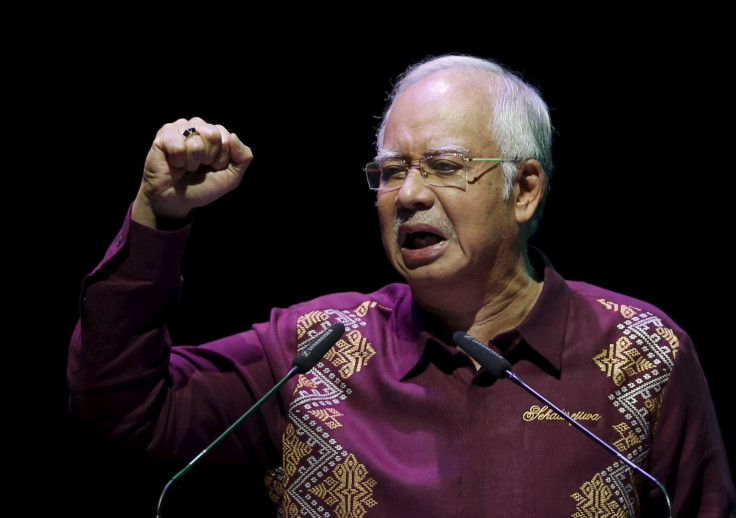Malaysian Leader Najib Faces Ouster Moves Amid $700M Corruption Allegation

After Malaysia’s parliament returns from a four-month break this week, Prime Minister Najib Razak could face a series of no-confidence votes over a corruption controversy that's sapped investor confidence in the country. Foreigners pulled $4.7 billion from Malaysian stocks in the last quarter, helping make the ringgit the worst performer in Asia this year, according to Bloomberg News.
The controversy revolves around 1Malaysia Development Berhad (1MDB), a fund the prime minister chairs. Citing government investigations, opposition leaders allege the fund funneled $700 million into Najib’s pockets and they say the fund has $11 billion in debt because of this and other transactions they consider questionable, the Wall Street Journal reported. Najib and his spokesmen have said that $700 million is the total donations from a Middle East supporter he hasn’t identified and that he isn’t closely involved in 1MDB’s deals.
As early as August, former Prime Minister Mahatir Mohamad, who remains influential after having led the country for 22 years, called for Najib, a protégé, to step down. In a rare joint statement this month, Malaysia's nine sultans said a credible investigation is needed because the controversy may have "resulted in a crisis of confidence." And highly respected Bank Negara Malaysia Governor Zeti Akhtar Aziz has clamped down on 1MDB while other agencies are investigating the controversy.
But a no-confidence vote, not to mention winning such a vote, will be a challenge because the opposition is 25 votes short of a majority, Bloomberg said. Still, they can try to force it when parliament opens today, or when the budget or the Trans-Pacific Partnership (TPP) come before legislators.
The TPP is the U.S.-led initiative for freer trade and investment among 12 countries. Negotiators for the 12 finalized the agreement earlier in October, sending it for ratification by Malaysia and other countries. Some observers say TPP, which doesn't include China, is a U.S. move to counter China's growing influence in Asia. Meanwhile, some say local businesses who will be hurt by the agreement could push some members of Najib’s Barisan Nasional party (BN) to vote with the opposition against it, an outcome that would weaken his government.
“The BN MPs will support the budget, but the vote of no confidence could come in against Najib’s promotion of the TPP agreement, as some of the government MPs are worried local business will be sidelined” by the Pacific trade pact, Bloomberg reported Wan Saiful Wan Jan, head of the Institute for Democracy and Economic Affairs, as saying.
The controvery is also a potential black eye for U.S. investment bank Goldman Sachs, with the U.S. Justice Department and Federal Bureau of Investigation gathering information on the bank's deals with 1MDB as part of a broader probe, the Wall Street Journal reported on Oct. 14. An FBI official said there is no decision yet about whether the relationship will be part of any investigation into 1MDB.
© Copyright IBTimes 2025. All rights reserved.





















